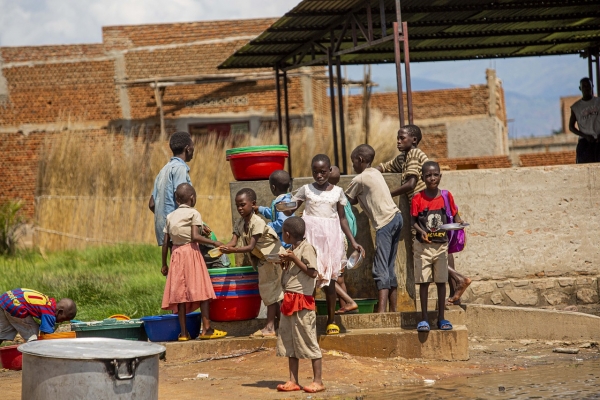During a press conference in Geneva, Mohamed Ag Ayoya, UN humanitarian coordinator in the Central African Republic, stated that the UN's priorities within the current humanitarian crisis in the country remain assistance to the most vulnerable, and support for victims of the aftermath of the conflict in Sudan.
The triggers of the crisis are repeated military clashes between various armed groups, destructive flooding and lack of adequate investment and basic infrastructure. More than 6,000 houses have been destroyed and more than 100,000 people have been uprooted from their homes and forced to seek refuge, sometimes across the border. In addition, the unavailability of basic services aggravates living conditions and erodes the resilience of the population. The direct consequence is a devastating human cost, as three out of five citizens lack access to clean water and sanitation, only 55 percent of children complete elementary school, and in just three months, 5,000 cases of violence against women and girls have been reported.
To the already severe combined impact of the COVID-19 pandemic and the Russian invasion of Ukraine have recently been added the terrible consequences of the conflict in neighbouring Sudan, which have only worsened the humanitarian crisis and the situation for those families who were already finding it difficult to meet their basic needs. Indeed, the country's limited resources are receiving additional pressure from the arrival of nearly 14,000 Sudanese asylum seekers and the disruption of trade across the border.
Moreover, due to both climatic impediments, such as inaccessible roads during the rainy season, and incidents of violence against aid workers, it has become extremely difficult to deliver aid in the Central African Republic. Despite this, Mohamed Ag Ayoya reassured the international community by clarifying that humanitarian partners are always ready to mobilise in the face of emergencies and find ways to reach people in need.
To read more, please visit:
https://news.un.org/en/story/2023/06/1137367
https://news.un.org/en/story/2023/06/1137347
https://news.un.org/en/story/2021/07/1095402
by Chiara Cacciatore







